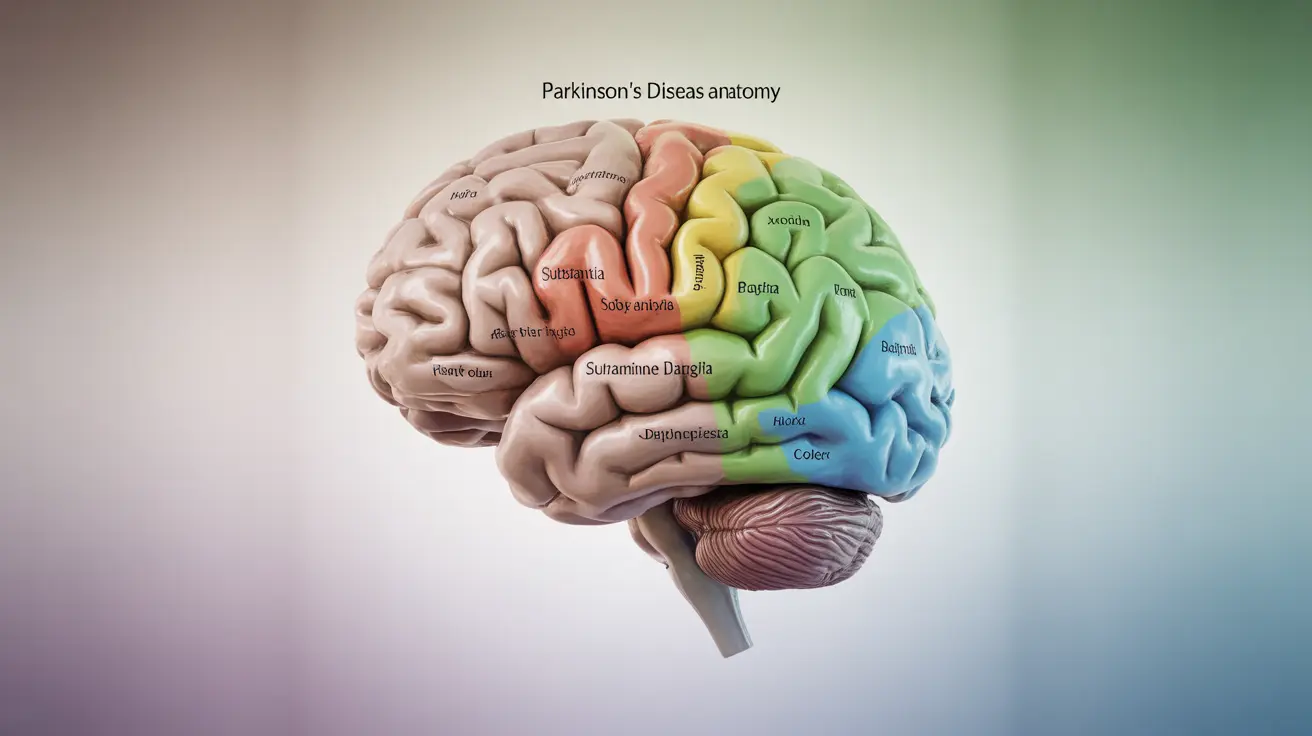Parkinson's disease (PD) is a complex neurological disorder that primarily affects specific regions of the brain, leading to both motor and non-motor symptoms. Understanding how this progressive condition impacts different areas of the brain is crucial for patients, caregivers, and healthcare providers in managing the disease effectively.
While most people associate Parkinson's disease with movement problems, the condition actually affects multiple brain regions and neural circuits, resulting in a wide range of symptoms that can significantly impact daily life.
The Substantia Nigra: Ground Zero for Parkinson's Disease
The substantia nigra, a structure located in the midbrain, is the primary brain region affected by Parkinson's disease. This area contains specialized neurons that produce dopamine, a crucial neurotransmitter responsible for coordinating movement, motivation, and reward.
In Parkinson's disease, these dopamine-producing neurons gradually die off, leading to a significant reduction in dopamine levels. This loss triggers the characteristic motor symptoms of PD, including:
- Tremors, especially when at rest
- Muscle rigidity
- Slow movement (bradykinesia)
- Problems with balance and coordination
Beyond the Substantia Nigra: Other Affected Brain Regions
The Basal Ganglia Network
The substantia nigra is part of a larger network called the basal ganglia, which plays a crucial role in movement control. When Parkinson's disease disrupts this network, it affects multiple brain circuits responsible for:
- Motor planning and execution
- Learning and habit formation
- Emotional processing
- Cognitive functions
The Cerebral Cortex
As Parkinson's disease progresses, it can impact various areas of the cerebral cortex, leading to cognitive and behavioral changes. These affects may include:
- Problems with executive function
- Difficulties with attention and concentration
- Changes in memory processing
- Altered emotional regulation
Cognitive Impact and Dementia Connection
The spread of Parkinson's disease to different brain regions can lead to cognitive decline and, in some cases, Parkinson's disease dementia. This progression often affects:
- The temporal lobe, involved in memory formation
- The prefrontal cortex, responsible for decision-making
- Areas involved in language processing and visual perception
Impact on Mood and Memory Centers
Parkinson's disease can affect brain regions responsible for mood regulation and memory formation, including:
- The limbic system, controlling emotions and behavior
- The hippocampus, crucial for memory formation
- The amygdala, involved in emotional processing and fear response
Frequently Asked Questions
What part of the brain is most affected by Parkinson's disease and how does it impact movement?
The substantia nigra is most affected, where the loss of dopamine-producing neurons leads to movement difficulties, including tremors, stiffness, and slow movement.
How does the loss of dopamine-producing neurons in the substantia nigra cause Parkinson's symptoms?
When dopamine-producing neurons die, the brain's ability to coordinate movement is impaired. This chemical imbalance disrupts normal motor function, leading to the characteristic symptoms of Parkinson's disease.
Can Parkinson's disease affect other brain regions besides the substantia nigra, and what symptoms does this cause?
Yes, Parkinson's can affect multiple brain regions, including the basal ganglia, cerebral cortex, and limbic system, leading to cognitive problems, mood changes, and memory issues.
What is the connection between Parkinson's disease and dementia or cognitive decline?
As Parkinson's progresses, it can spread to brain regions responsible for cognitive function, potentially leading to dementia characterized by problems with memory, thinking, and behavior.
How does Parkinson's disease progression impact different brain areas involved in mood and memory?
The disease can affect the limbic system, hippocampus, and other regions responsible for emotional processing and memory formation, leading to mood disorders and memory problems.




